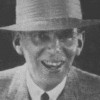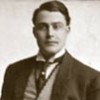If you want to really hurt your parents, and you don’t have the nerve to be gay, the least you can do is go into the arts. I’m not kidding. The arts are not a way of making a living. They are a very human way of making life more bearable.
Kurt Vonnegut, Jr. (1922-2007) American novelist, journalist
Man Without a Country, ch. 3 “Here Is a Lesson in Creative Writing” (2005)
(Source)
Quotations about:
career
Note not all quotations have been tagged, so Search may find additional quotes on this topic.
Though so lengthy a book should your taste satisfy,
You have asked me for more: but my household will cry
For some food, and the usurer’s drained me quite dry;
So reader … you see what I mean to imply?
You are silent and don’t understand me? Good bye![Quamvis tam longo possis satur esse libello,
Lector, adhuc a me disticha pauca petis.
Sed Lupus usuram puerique diaria poscunt.
Lector, solve. Taces dissimulasque? Vale.]Martial (AD c.39-c.103) Spanish Roman poet, satirist, epigrammatist [Marcus Valerius Martialis]
Epigrams [Epigrammata], Book 11, epigram 108 (11.108) (AD 96) [tr. Pott & Wright (1921), “A Hint”]
(Source)
"To the Reader." (Source (Latin)). Alternate translations:
With my long book thou well may'st glutted be,
Yet thou more epigrams exact'st of me:
But Lupus calls for use, servants for pay,
Discharge them, reader. Now thou'st nought to say,
Dissemblest, as my words thou could'st not spell.
No riddle thou'rt to me, reader, farewell.
[tr. Killigrew (1695)]
Although, reader, you may well be tired of so long a book, you still want a few more distichs from me. But Lupus demands his interest; and my copyists their wages. Pay, reader. You are silent; do you pretend not to hear? Then, goodbye.
[tr. Bohn's Classical (1859)]
Although with so long a book you may well be sated, reader, yiou still ask for a few distichs from me. But Lupus requires his interest, and my slaves their rations. Reader, pay me. Do you say nothing, and pretend yuo don't understand? Good bye!
[tr. Ker (1919)]
Contented reader -- I had thought to say,
But something's wanting? Then perhaps you'll pay.
My bailiff's broke, my lads for victuals cry;
What? Silent? Can't afford it? Then good-bye.
[tr. Francis & Tatum (1924), ep. 639, "A Postscript"]
I should have thought you'd had your fill
By now -- this book's too long -- yet still
You clamour for couplets. You forget,
My slaves need rations, I'm in debt,
The interest's due ... Dear reader, pay
My creditors for me. Silent, eh?
The puzzled innocent? Good-day!
[tr. Michie (1972)]
Reader, although you might well be satisfied with so long a little book, you ask me for a few couplets more. But Lupus demands his interest and the boys their rations. Pay up, reader. You say nothing and pretend not to hear? Good-bye.
[tr. Shackleton Bailey (1993)]
Reader, so long a book should satisfy you,
yet still "a few more couplets," you reply.
But boys want food and Lupus wants his interest.
Pay up! You're silent, playing deaf? Goodbye.
[tr. McLean (2014)]
A little book this long could satisfy your appetite, reader, but still you ask me for a few couplets more; but Lupus wants his interest, and my boys, their rations. Reader, clear my slate. Nothing to say? Pretending you're deaf? Get lost!
[tr. Nisbet (2015)]
So long as you write what you wish to write, that is all that matters; and whether it matters for ages or only for hours, nobody can say.
Virginia Woolf (1882-1941) English modernist writer [b. Adeline Virginia Stephen]
“A Room of One’s Own,” ch. 6 (1929)
(Source)
I believe that happiness consists in having a destiny in keeping with our abilities. Our desires are things of the moment, often harmful even to ourselves; but our abilities are permanent, and their demands never cease.
Germaine de Staël (1766-1817) Swiss-French writer, woman of letters, critic, salonist [Anne Louise Germaine de Staël-Holstein, Madame de Staël, Madame Necker]
Reflections on Suicide (1813)
(Source)
People always ask if a woman can be a wife and mother and have a career at the same time. Why don’t they ask if she can be a hostess, chauffeur, cook, gardener, nurse, seamstress, social secretary, purchasing agent, baby machine, and courtesan — and a wife and a mother, too?
I am very sure that any man of common understanding may, by proper culture, care, attention and labor, make himself whatever he pleases, except a great poet.
Lord Chesterfield (1694-1773) English statesman, wit [Philip Dormer Stanhope]
Letter to his son, #113 (9 Oct 1746)
(Source)
Be nice to people on your way up because you’ll meet them on your way down.
It took me twenty years to become an overnight success.
Eddie Cantor (1892-1964) American comedian, dancer, singer, actor, songwriter [b. Isidore Itzkowitz]
(Attributed)
Though most often attributed to Cantor, the phrase is also associated with Danny Thomas and many others. Sometimes given as "It takes twenty years to become an overnight success" (or sometimes ten years). More here.
I tell you all this because it’s worth recognizing that there is no such thing as an overnight success. You will do well to cultivate the resources in yourself that bring you happiness outside of success or failure. The truth is, most of us discover where we are headed when we arrive. At that time, we turn around and say, yes, this is obviously where I was going all along. It’s a good idea to try to enjoy the scenery on the detours, because you’ll probably take a few.
Bill Watterson (b. 1958) American cartoonist
Commencement Address, Kenyon College (20 May 1990)
(Source)
Your work is going to fill a large part of your life, and the only way to be truly satisfied is to do what you believe is great work. And the only way to do great work is to love what you do. If you haven’t found it yet, keep looking. Don’t settle. As with all matters of the heart, you’ll know when you find it. And, like any great relationship, it just gets better and better as the years roll on. So keep looking. Don’t settle.
Steve Jobs (1955-2011) American computer inventor, entrepreneur
Commencement Address, Stanford University (2005)
(Source)
When I was 17, I read a quote that went something like: “If you live each day as if it was your last, someday you’ll most certainly be right.” It made an impression on me, and since then, for the past 33 years, I have looked in the mirror every morning and asked myself: “If today were the last day of my life, would I want to do what I am about to do today?” And whenever the answer has been “No” for too many days in a row, I know I need to change something.
Steve Jobs (1955-2011) American computer inventor, entrepreneur
Commencement Address, Stanford University (2005)
(Source)
All rising to a great place is by a winding stair.
Francis Bacon (1561-1626) English philosopher, scientist, author, statesman
“Of Great Place,” Essays, No. 11 (1625)
(Source)
Love what you do. Get good at it. Competence is a rare commodity in this day and age. And let the chips fall where they may.
Jon Stewart (b. 1962) American satirist, comedian, and television host. [b. Jonathan Stuart Leibowitz]
Commencement Address, College of William & Mary (2004-05-20)
(Source)














